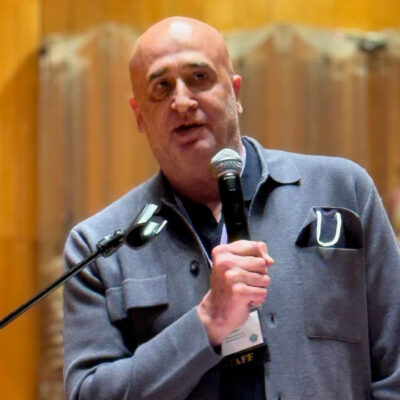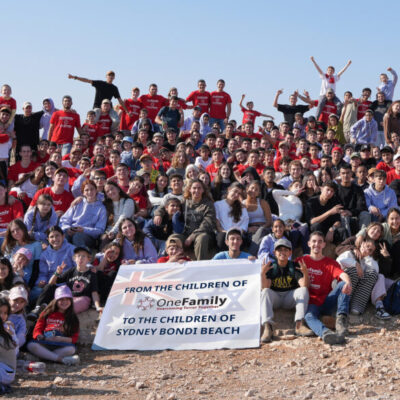Opinion
Jewish Leadership at Hornstein

By Joseph Reimer
What is Jewish leadership? And if it’s a thing, can you learn it?
At the Hornstein Jewish Professional Leadership Program’s recent orientation for new students, I was asked to imagine that a prospective applicant to Hornstein came to see me and asked these questions:
“I am already working in the Jewish community. Why wouldn’t I continue working my way up the ranks? Or if I need to boost my skills or knowledge, why shouldn’t I enroll in one of those part-time MBA programs? Tell me why I should take 21 months out of my work life to come to Hornstein and Heller?”
There’s a lot I might say to this prospective student but I’d start with Jewish leadership. I’d say that two years in Hornstein offers a student a unique perspective on Jewish leadership. But what is Jewish leadership anyway, and what makes me so sure that the Hornstein Program provides special access to it?
I admit: I don’t have a crisp definition of “Jewish leadership.” But – I think I can identify it when I see it. And when I have seen Jewish leadership, it has had these four qualities.
- Leaders deeply know the Jewish community that they serve and respect the diversity of that community.
- Leaders radiate a deep concern for the Jewish people across the globe without forgetting that “Jews” and “non-Jews” are all the children of God.
- Leaders know that “Jewish” is more than a cultural or national designation and also refers to the centuries of Jewish wisdom that still informs our choices.
- Leaders are future-oriented and know we need to be looking ahead and thinking strategically and flexibly about securing our community’s well-being in a fast changing world.
I believe that these qualities can be taught, in part, and that is what we Hornstein faculty are trying to do. How so?
- We give students the tools to learn about the Jewish communities in which they will serve. Each community differs, but all Jewish communities (at least in North America) have common features and one can learn to view one’s own community against the background and history of those common features.
- We focus on North America, but with attention to Jewish communities across the globe. We offer special trips to Israel and Europe that are designed to teach how the North American Jewish community can best relate to world Jewry. We also stress that when we help others, we strive to help all others, including our fellow Jews, but not them alone.
- We study the historic Jewish values that underlie Jewish leadership. We think of leadership as having both generic features and specifically Jewish qualities. We try to teach those in tandem.
- We have our students meet and study contemporary Jewish leaders so they can see “Jewish leadership” up close. For us “Jewish leadership” is never an abstraction, but always a set of practices that we can learn by observation.
- We give our students multiple opportunities to exercise leadership within the Hornstein community. Our students learn to be Jewish leaders by practicing leadership and getting feedback. Hornstein continues to be a safe space for learning those practices.
I will also admit that no one would claim that teaching Jewish leadership is easy or that everyone who studies at Hornstein emerges as a Jewish leader. But I make a modest claim: Hornstein continues to be one of the best venues where potential Jewish leaders can learn the basic qualities of Jewish leadership which, one day, may blossom into the real thing.
Is that worth 21 months of one’s time? It all depends. To just get ahead in the Jewish community, probably not. But to emerge as a future Jewish leader, then I’d say, yes. Yes indeed.
Professor Joseph Reimer is an Associate Professor in Jewish Education at Brandeis University who splits his teaching and advising time between the Hornstein Jewish Professional Leadership Program and the Education Program; and a consultant to the Nachshon Project and the Hiddur Initiative of the Foundation for Jewish Camp.

 Add EJP on Google
Add EJP on Google










